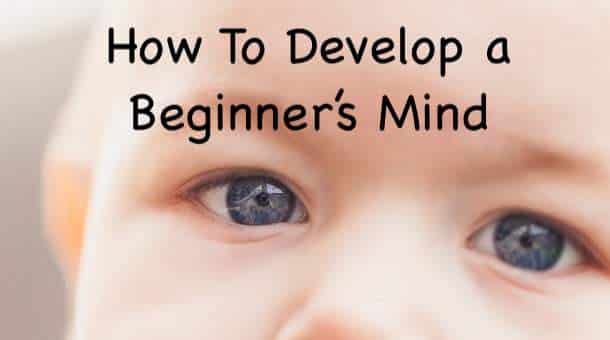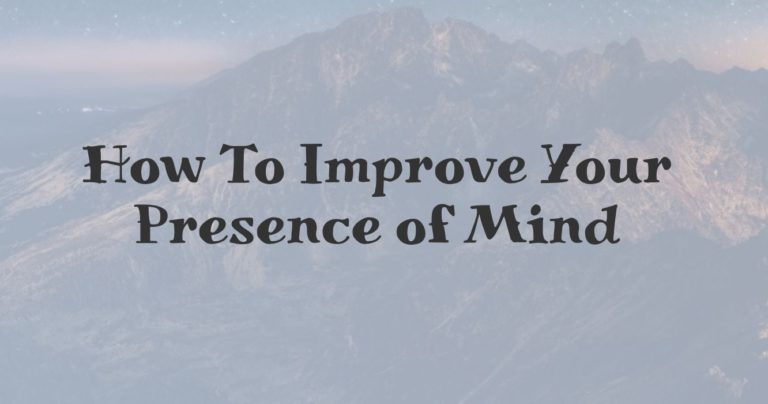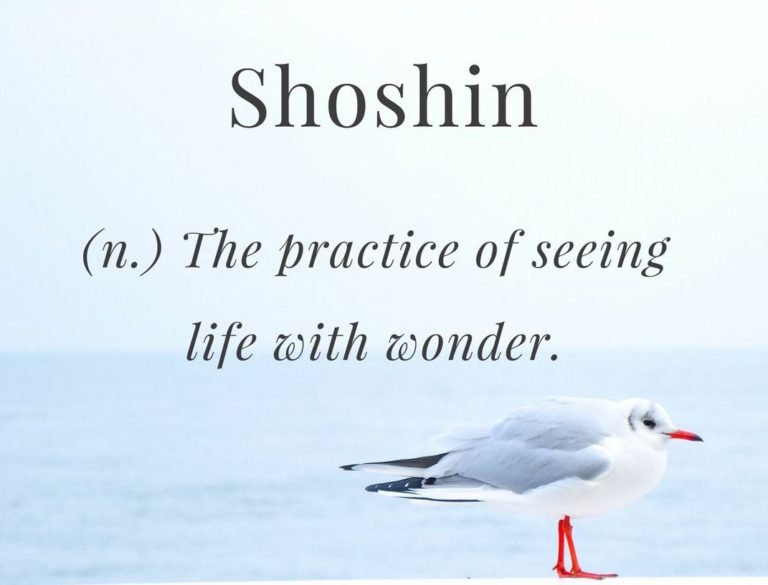Life does not have to be complicated.
So much of our stress, our worries, and our fatigue comes from the way we interpret the world around us. Happiness, in its truest form, has very little to do with what we experience, and far more to do with how we experience it.
If you are a student of mindfulness, you know there are many ways you can practice appreciating the good nature of the world, but one of the simplest and most important habits you can develop is to begin to live life with a beginner’s mindset.
In this post, I’ll talk about the Zen concept of beginner’s mind, which is also known as Shoshin, and I’ll explain a few tips you can use to live peacefully and productively from this mindset.
Related Post: How To Simplify Your Life in 3 Easy Steps.
What Is Shoshin? The Beginner’s Mind Explained
In the Zen Buddhist tradition, the practice of approaching everything in life with a beginner’s mindset is known as Shoshin
Shoshin is a practice of openness and acceptance. It means that whenever you experience something, you allow yourself to experience it without any pre-existing beliefs, past stories, or preconceptions coloring your experience. It means to appreciate the world around you, as if you are seeing everything for the first time.
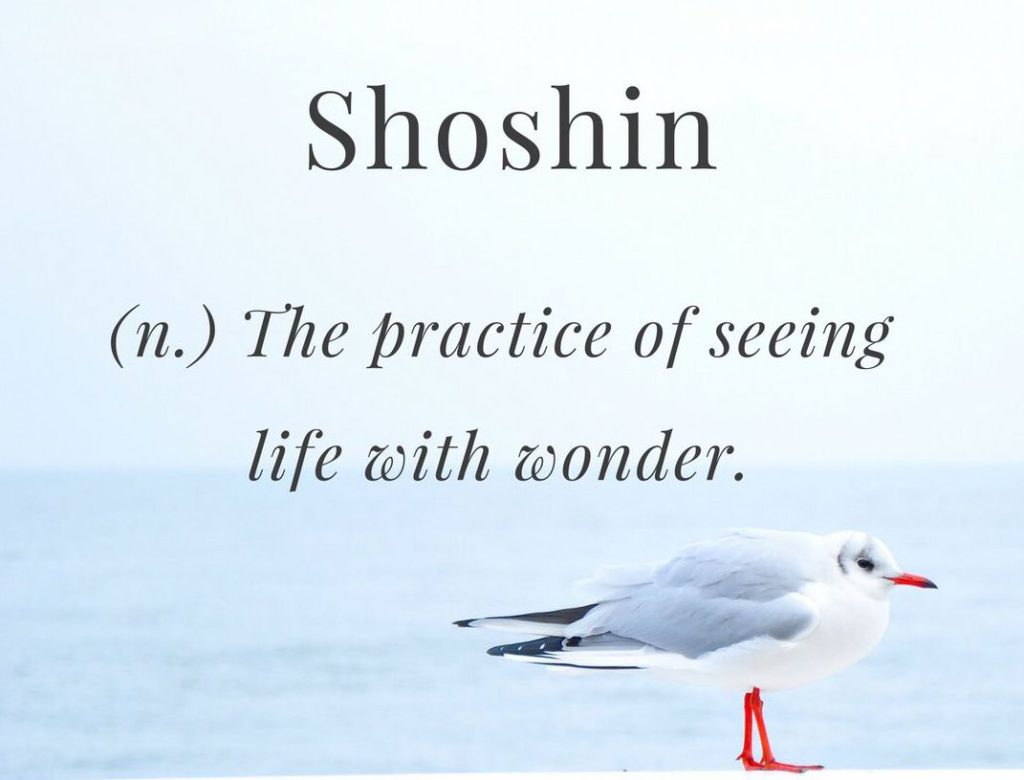
To internalize this idea a little further, imagine that you are just beginning to learn a new skill. When you are just learning something, you do not pretend that you know that answers. You ask questions with curiosity and eagerness, and you are excited that everything you learn gives you new meaning, knowledge, and experience.
Unfortunately, for most people, once we become practiced at a skill, we begin to lose the joy of the beginner’s outlook. We begin to think we know how something should be done, or we believe that an outcome must conform to our expectations.
From the perspective of shoshin, the best master is someone who can continually approach his skill (and his life) with the same receptivity, openness, and eagerness as a beginner.
Only then will you be able to receive the lessons inherent in the current moment, without coloring the moment with past beliefs, judgments, and expectations.
Tips for Practicing the Zen Mindset
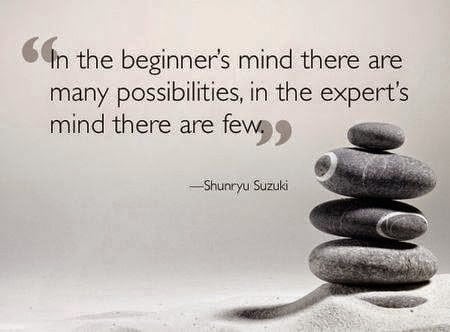
Of course, understanding the concept of the beginner’s mindset in Zen is only the first step. The real challenge comes in learning to practice that mindset, every single day.
Fortunately, there are a few simple practices you can develop that will help you to develop this new approach to life.
- Begin to practice mindfulness. At its core, mindfulness is a practice of appreciation. When you are mindful, you take the time to notice the simple but beautiful details that are always surrounding you, whether they are the patterns on a flower petal, or the gentle pulse of your breath. Learning to appreciate these details is essential for developing a beginner’s mind. Click here to browse our recommended mindfulness exercises, or explore these pranayama techniques.
- Accept that you do not know. The second tip for devleoping a beginner’s mind is to accept that you do not know. Importantly, this means that you must learn that not knowing is ok. When we are wrapped up in the stories of the ego-mind, we often tie a part of our identity to our ability to prove ourselves correct. When we can reverse that trend and learn how to get rid of the ego’s pain body, we see that we do not know something, we open ourselves to learning new experiences.
- Ask silent questions. Lastly, practicing a Zen beginner’s mind means that you ask a lot of questions. This doesn’t mean that you ask others, but simply that you ask yourself. When you experience something that doesn’t go “according to plan” ask yourself what else is there for you to witness. Why are you experiencing that event in this way? What is there for you to learn from it? Approaching life with a litany of questions is a surefire way to develop openness and receptivity.
Related Post: 15 Spiritual Questions to Ask Yourself Right Now

